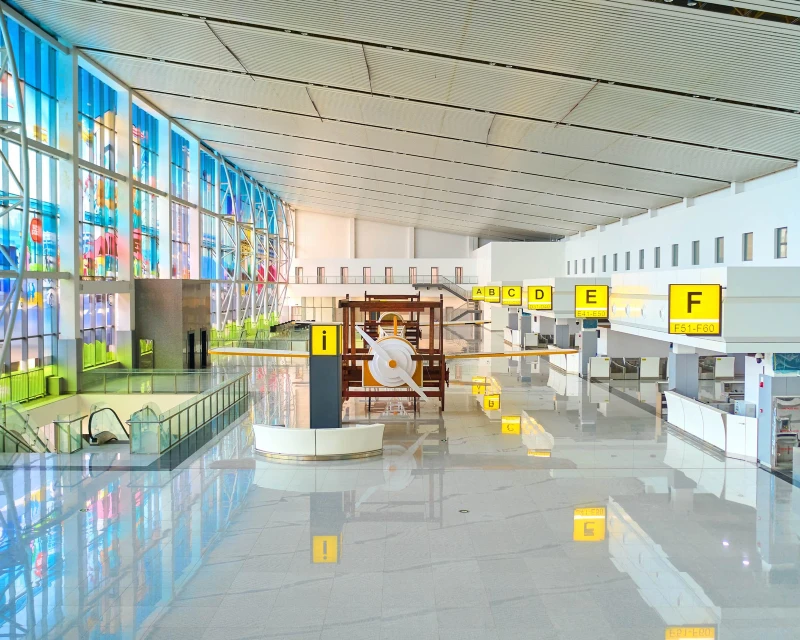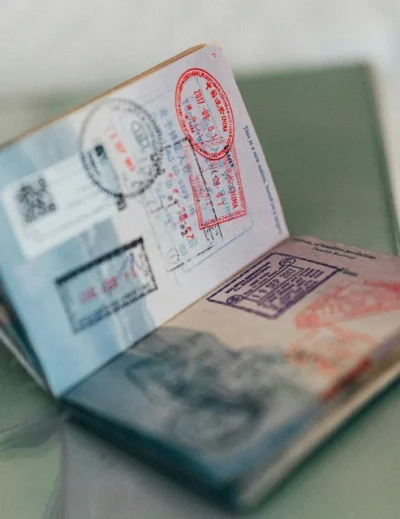
What to expect at customs and immigration in Nigerian airports
Travelling internationally for the first time can be an intimidating experience, especially when you’re not sure what to expect at the airport customs and immigration counters. If you’re a first-time traveller from Nigeria, you might feel a bit overwhelmed with the process. Don’t worry though, we will walk you through everything happens at customs and immigrations in nigerian airports, so you are less nervous.
Prepare your documents before you travel
Make sure all your paperwork is in order. The major documents you’ll need are your passport, visa, and flight ticket.
Passport: Make sure your Nigerian passport is valid for at least six months before your travel date with at least one or two blank pages left in your passport.
Visa: Carry the physical copy of your visa along with your passport.
Flight ticket: Keep a printed copy of your flight ticket, as this is sometimes asked at customs to confirm that you’re not going to overstay your visa.
At the Airport: Check-in process
Once you’re at the airport, go to your airline’s check-in counter. Here, you’ll present your passport, visa (if applicable), and flight ticket. The airline staff will check these documents and issue your boarding pass. They will also weigh your luggage and may ask you a few questions regarding the contents of your baggage.
You might also be asked if you’re carrying items that need to be declared, such as large amounts of cash, items for commercial use, or restricted items. If you have any questions about what you can and can’t carry, it’s always best to clarify with the check-in staff. Or your airline’s website so you don’t end up giving away a lot of your purchases.
Security checks
Before you even get to customs or immigration, you will need to pass through security screening. First at the entrance of the airport before you check in and then after check-in. You’ll be asked to place your carry-on bags, shoes, and other personal items into trays so they can be scanned by security officers. You’ll also go through a full-body scan at the metal detector. If the security officer finds something suspicious, you might be asked to step aside for a secondary screening.
This is also the point where liquids, gels, and electronics may be examined more closely, so make sure liquids in your carryon are no more than 100ml.
Immigration – exiting Nigeria
When it’s time to go through immigration to leave Nigeria, this is where you’ll be officially checked out of the country.
You’ll present your passport, visa, and boarding pass. The immigration officer will verify your documents and may ask you a few questions like where you’re going, how long you are staying, the purpose of your trip, etc.
If you’re travelling to a country that requires a visa, the immigration officer will confirm that you have the necessary documents before stamping your passport. If you’re leaving for a visa-free or visa-on-arrival destination, you won’t need any additional paperwork for exit.
RELATED: Airport transits: What Nigerian travelers need to know
Customs
After clearing immigration, you’ll go through customs. This is where you’ll declare any items you’re bringing out of the country or those that are subject to tax or duty.
If you’re carrying electronic devices, or anything else that might be subject to customs duty, make sure to declare it.
Another thing you’ll be asked to declare from Check-in to customs is your Personal Travel Allowance (PTA). PTA is the amount of foreign currency you’re allowed to carry for personal use when travelling. For first-time travellers, customs officers may ask to see the PTA form and any proof that you have sufficient funds for your trip.
While in the past you only had to declare sums of $10,000 above. Be prepared to divulge how much you are carrying even if less than that.
Customs officers might also ask to inspect your luggage. This is standard and typically involves a quick scan of your items to ensure you’re not carrying anything prohibited or restricted.
Arriving at your destination: Immigration and customs
Once you arrive at your destination, you’ll have to go through immigration and customs again, but this time in a foreign country.
Immigration control: The immigration officer will check your passport and visa (if required). They might ask you questions like why you are visiting, how long you plan to stay, where you’ll be staying, etc.
Be prepared for these questions, and keep your answers clear, and honest.
Customs check: After passing through immigration, you’ll move to the baggage claim area, where you will collect your checked luggage. At this point, customs officers may ask you about what you’re bringing into the country. They’ll ask if you are carrying food, plants, animals, cash or goods that need to be declared, etc.
If you have nothing to declare, you’ll simply walk through the “Nothing to Declare” area.
RELATED: First time travelling internationally? Avoid these mistakes
Tips for first-time travellers
Be polite and calm
Customs and immigration officers are just doing their job. Be polite, calm, and cooperative.
Know your limits
Get familiar with the duty-free allowances of both Nigeria and your destination country so you don’t carry excess items that you may need to declare.
Carry documentation
Always carry copies of your visa, return flight ticket, hotel booking, and any required health or travel insurance information.
Stay within the law
Don’t carry items that are prohibited or restricted.









Leave a Reply